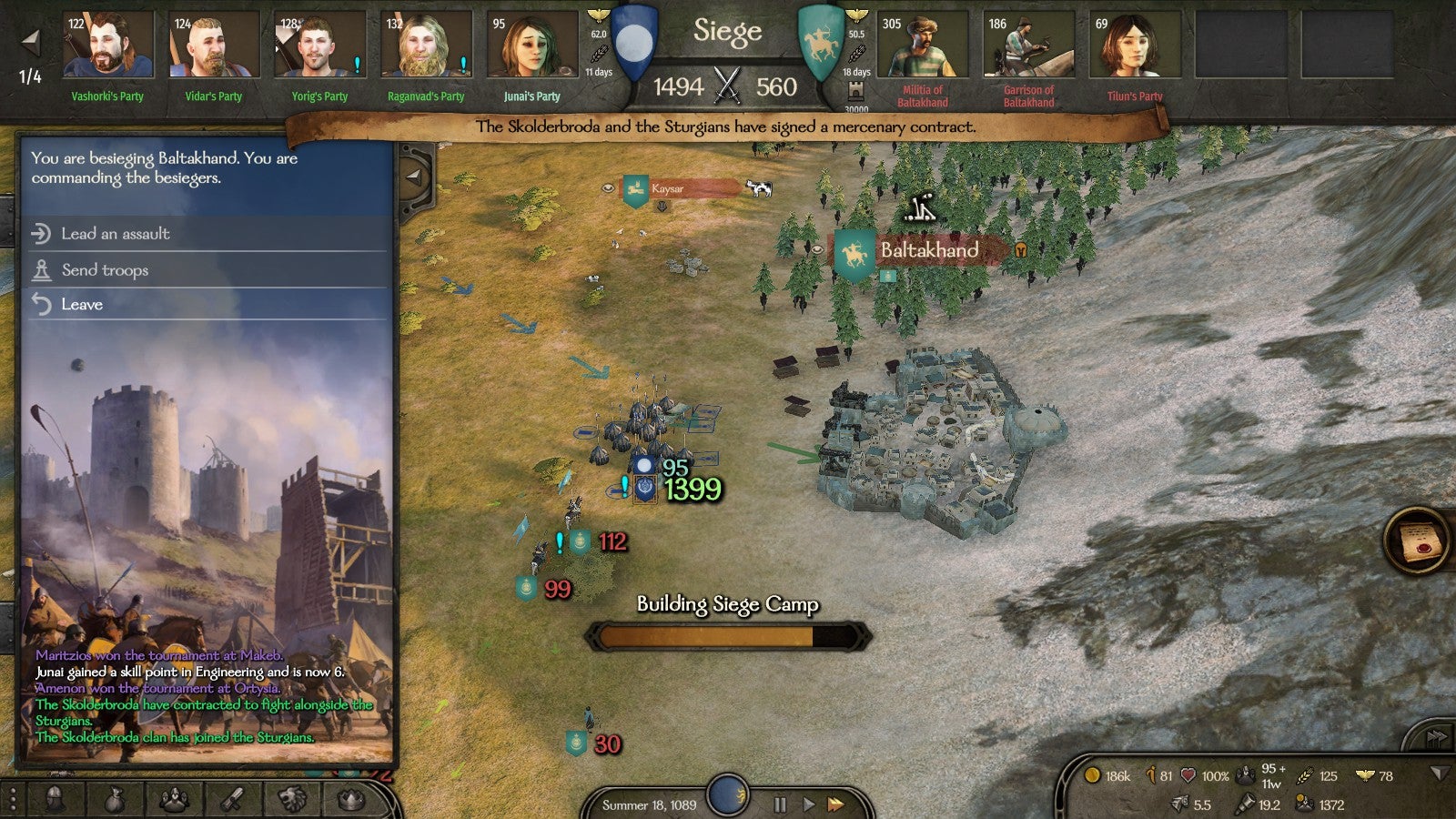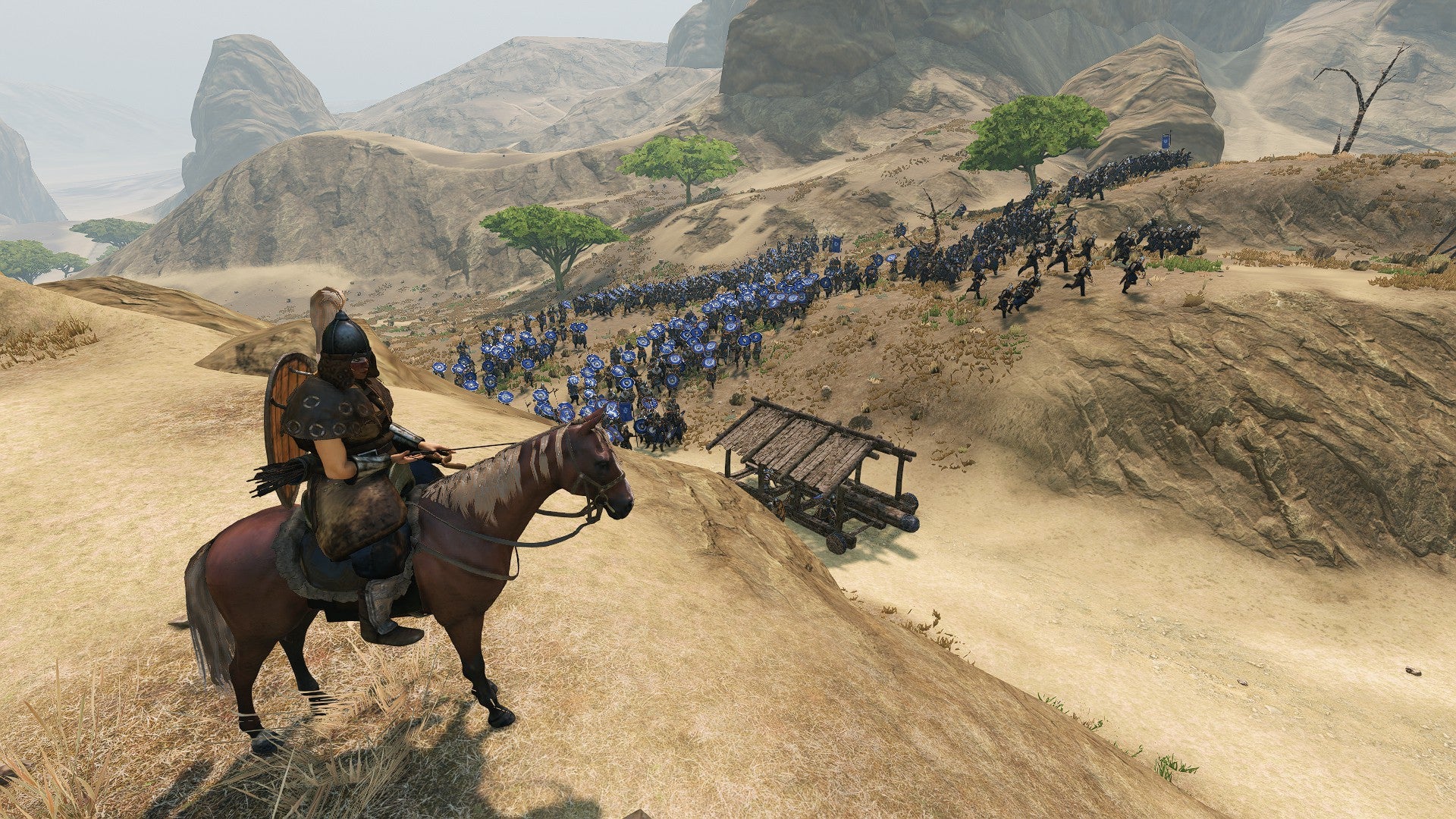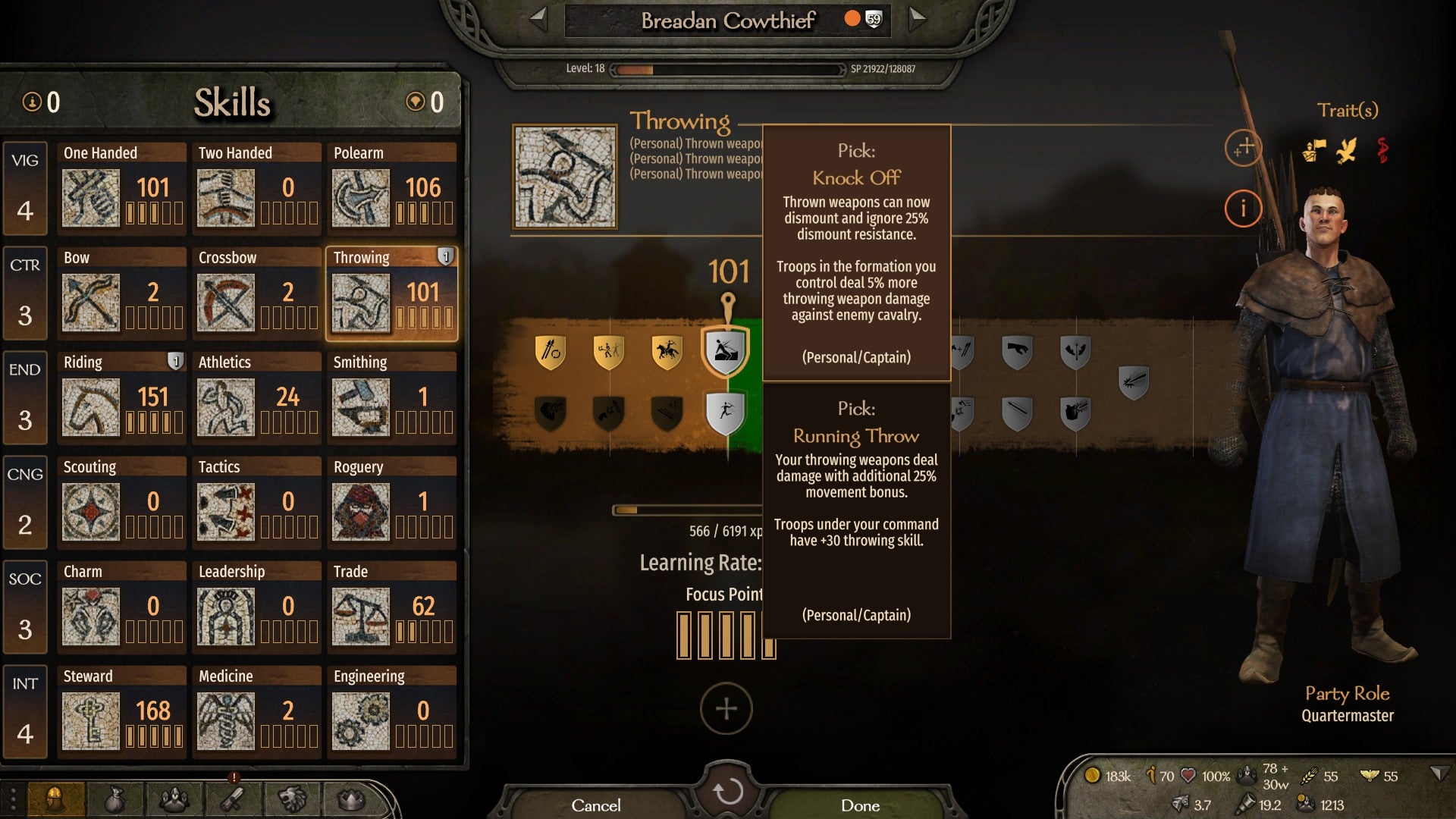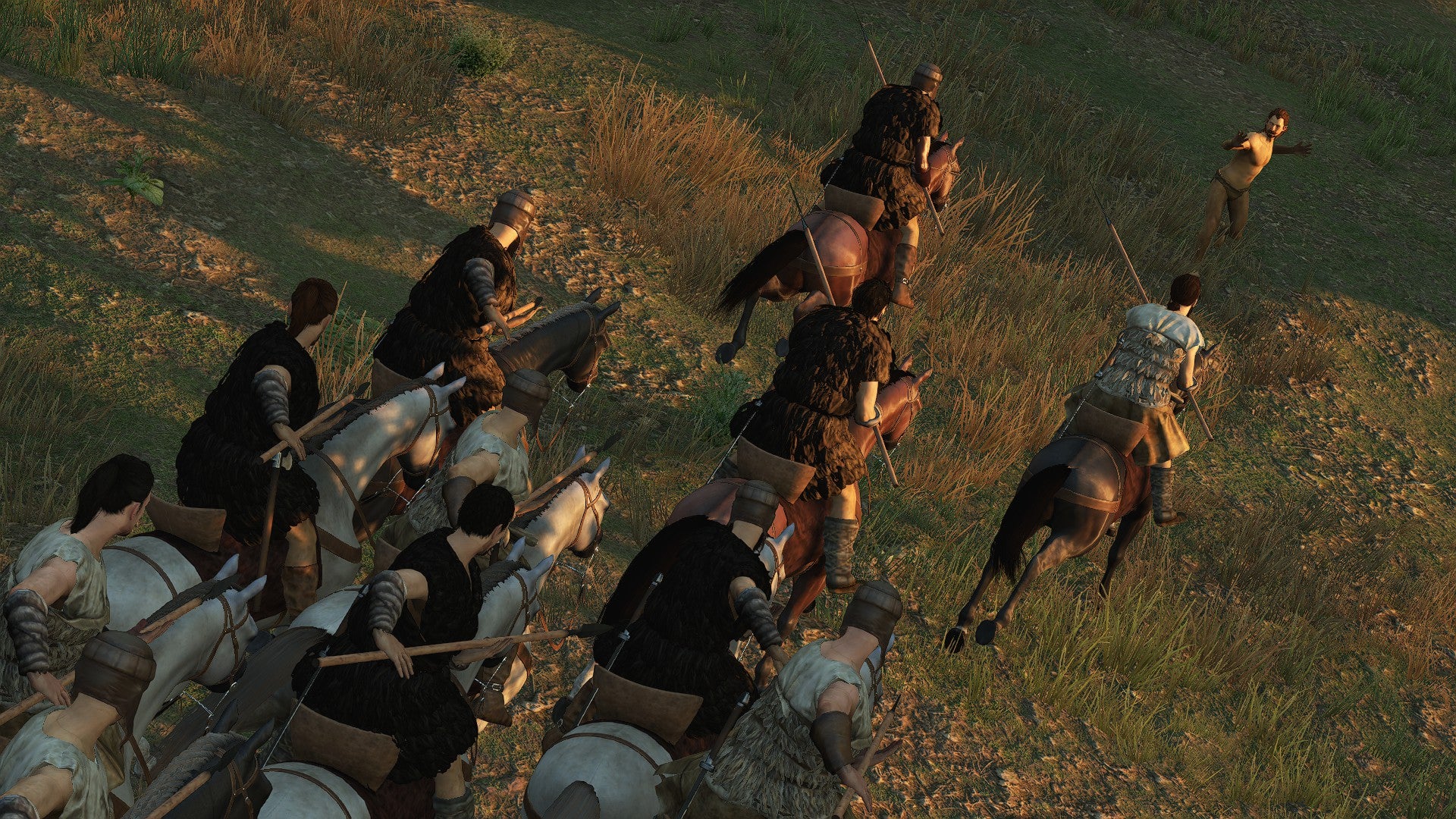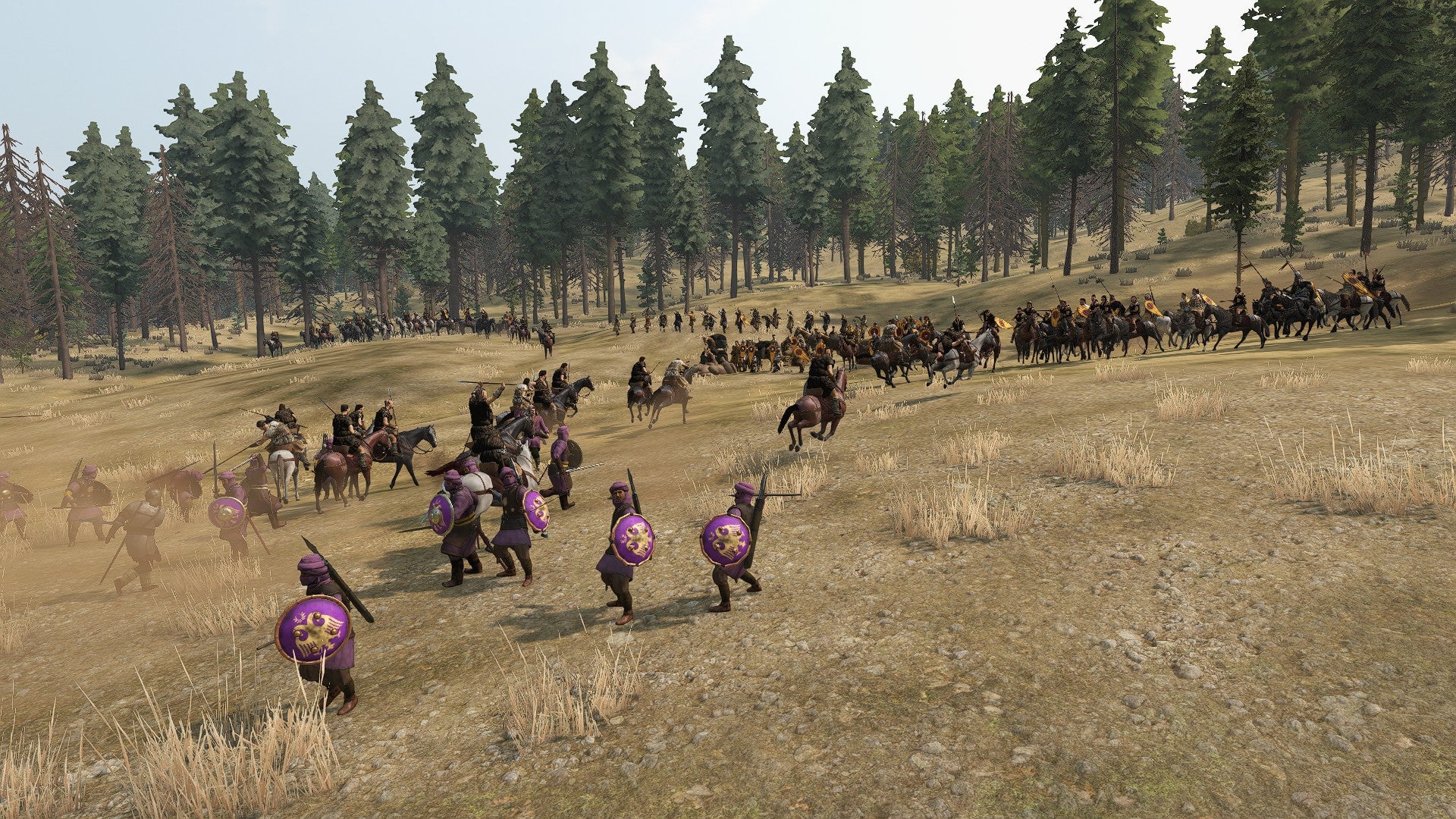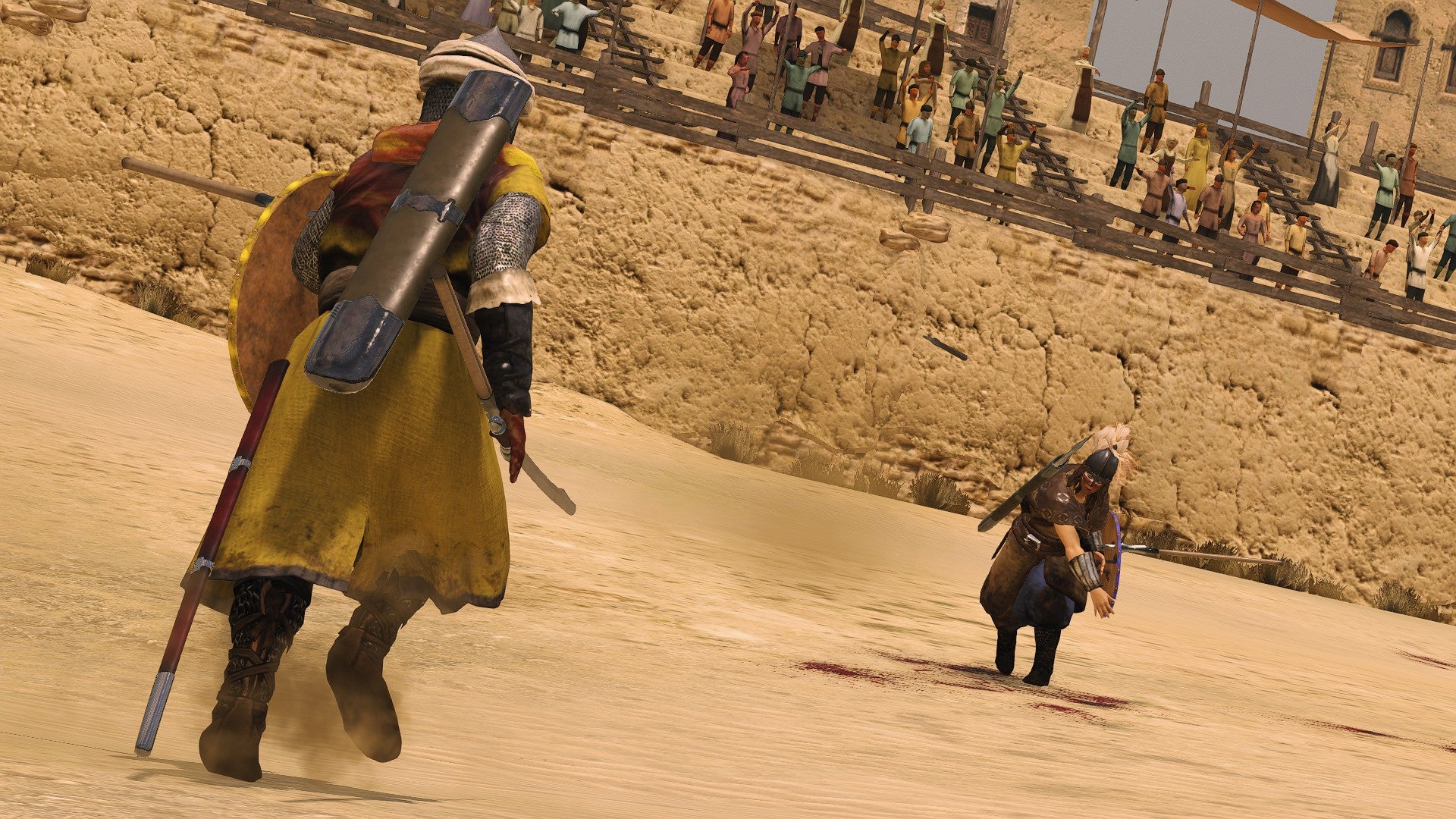In between leading your warband around its 2D map and stabbing dudes alongside your men in 3D battles, you can now make weapons by commandeering local workshops (I guess?) to break down and recombine spare swords. You can only do a few per day, so the pattern is to repeatedly click “make charcoal”, then leave to rest your tired little arms and repeat. I could probably get a more ~optimal build~ by smithing a megasword, but the one I have already does what I need. You can’t equip your army, even though that was in the very ropey Freeman. The end result is another axe in a game where you’ll discard hundreds of them. You can’t do armour, a huge waste considering the variety available, and that you spend vastly more time seeing your outfits than looking at anyone’s pommel. Each culture’s settlements look dramatically different, but there’s no reason to ever visit them that you can’t do from the menu. There’s no easy solution either, as mandating the slow treks through these dioramas would kill the game stone dead. The elaborate maps do add some flair and scale to sieges, at least, as soldiers push battering rams and erect ladders to force their way into those backstreets. But the AI still cannot handle it. 200 guys will run to open the sally port even though there’s nobody outside to use it, then up a tower to bundle one archer. The maps are a mere backdrop. You can’t do much more than follow the crowd, or be overwhelmed while your army faffs around. Lead them directly to the gate and hit it, and they’ll dutifully watch. Tell them to charge and they’ll leave to climb an exposed ladder. It’s similar in battles. Although they’re still where the real fun is, the AI remains robotic, and ordering troops uses the same old cumbersome, easily fumbled interface. Shield walls will let horse archers repeatedly shoot them in the back to fixate on one person. They sometimes switch targets, but have no situational awareness or concept of others. On the map you even see the same silly behaviour as in Warband, as armies run back and forth like they’re having a Zeroth law conflict. Then there’s “roguery”, a new skill meant for criminal antics. Criminal NPCs will ask you to go to the market and buy 23 axes, which sometimes annoys the local faction. Beyond that the differences are superficial. Roguery makes recruiting bandits easier, but most upgrade into regular troops anyway, making it pointless. Bandits can raid caravans, which is fun, but you’ll do that during war anyway. Each side job type repeats its unvarying script, until you’ll probably stop bothering. Contextualisation of information is another weak point. You get constant unfilterable, unlogged notifications but can’t quickly see who’s at war. Jobs that name a destination won’t show you where it is until accepted. A caravan escort offer won’t tell you where it’s going. When you accept, it spawns an army programmed to intercept the caravan. Remember in Battle Brothers when escort jobs paid on the off-chance of an ambush, not because it was inevitable, giving a sense of reality and uncertainty? Not in Bannerlord. Jobs impress NPCs, but rewards for their approval are miniscule and there’s no reason to care about anyone. For all the samey backstories that companions (named lieutenants you recruit in bars) spew upfront, there’s no behavioural difference, and I’ve never seen them interact. You can marry and have kids, meaning once in a while you’ll be told your sister is pregnant or someone wants to marry your nephew, and you probably say yes because I’ve discerned no consequence for them not liking me or their spouse. There might be mortality and randomly generated everything, but it’s all window dressing for the same robotic procedures. Companions can form parties or do side jobs if that’s your thing. You can sponsor caravans if you want to sometimes be told your caravan is under attack. You can execute captured lords to make everyone hate you. You can buy a brewery if you want to ask your employees what a brewery is. At one point, I stumbled across a king, who made me a lord. I captured two castles and a town, and his council gave them all to me as fiefs. After this he and his lords hated me, but voted for me anyway. Within a kingdom you can grind Influence to propose policies, which alter resource bonuses or change what lords can do, none of it noteworthy. Form your own and you can’t even choose its starting policies. Bannerlord’s leveling system is dull. Leveling gives one focus point, which instead of directly raising skills raises their cap and rate of increase. It’s miserly and makes gaining a level utterly underwhelming. Every third level gives an attribute point, which marginally raises three caps. Perks are new: when skills reach a milestone you get choices between two slight bonuses, like making archers hit 5% harder, or shields less likely to break. There’s little to say except some esoteric complaints like all the worthwhile scouting perks being mutually exclusive. Your best bet is to put all your points into passive skills, because they take forever, whereas with weapon skills you’re at least stabbing dudes, which remains, by far, the best part of the game. It is the game, at heart, and despite everything, it’s salvaged by those battles. Zapping someone from horseback feels terrific, hacking someone off his horse is still an unrivalled game experience. You get to arrange your troops at the start, and companions can independently lead formations. The maps are far more varied and interesting, with up to 1000 on screen at once, and models and animations are better, but otherwise it’s the same in every way, with the same directional combat, terrible spears, and kiting 50 guys in an endless circle. I still enjoy Bannerlord because there’s nothing else doing those open world battles. But almost everything else is a robotic, shallow grind offering no surprises, with a plethora of complaints that early access is supposed to iron out. You can ignore a lot of it, which only highlights how irrelevant it is, and though there are a lot more things going on, you have to provide your own motivation, because everyone’s behaviour is basically the same, and everything feels like a missed opportunity.
